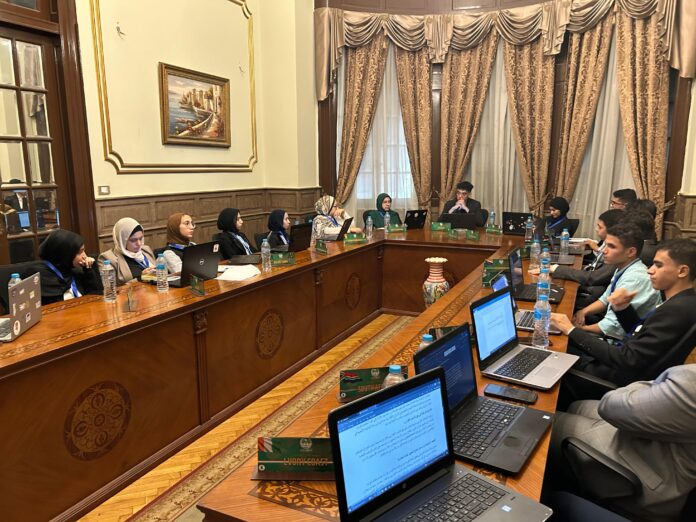The Global Solidarity Network has wrapped up its African Union Simulation Model for STEM School students, held throughout August 2025 under the theme “Justice for Africans and People of African Descent through Reparations.” The theme, which mirrors that of the African Union’s February 2025 summit, guided weeks of academic sessions, workshops, and policy writing with the participation of diplomats, AU officials, and African affairs researchers.
The program exposed students to the institutional structure of the AU, water cooperation challenges, Egypt’s developmental role on the continent, the African economy, legal frameworks, and the political dynamics of peace and conflict resolution.
The highlight came during a full simulation at the historic Palace of Ali Ibrahim Pasha, supervised by anthropological researcher and founder of the Global Solidarity Network, Hassan Ghazaly. Students acted as delegates of 30 African countries and eight colonial states, presenting 38 position papers. The African representatives demanded recognition of historical injustices, psychological reparations, and a rewriting of history to acknowledge colonial massacres, resource plundering, and the transatlantic slave trade.
Ghazaly hailed the program as a success, stressing that it sharpened the participants’ awareness of African issues while boosting their research, debate, and presentation skills. “Preparing a young generation that is conscious of Africa’s challenges and capable of representing it with competence is a true investment in the continent’s future,” he said, adding that the initiative aligns with Egypt’s long-standing vision to strengthen African capacities.
Since its launch in 2012, the AU Simulation Model has been part of the Global Solidarity Network’s broader efforts to deepen youth awareness of continental institutions and highlight Egypt’s historic role in African unity since 1963. Other flagship initiatives of the Network include the AfroMedia Initiative, Seeds Project for Popular Culture, Global South Solidarity School, and the Nile Valley Peoples’ Solidarity Project.




